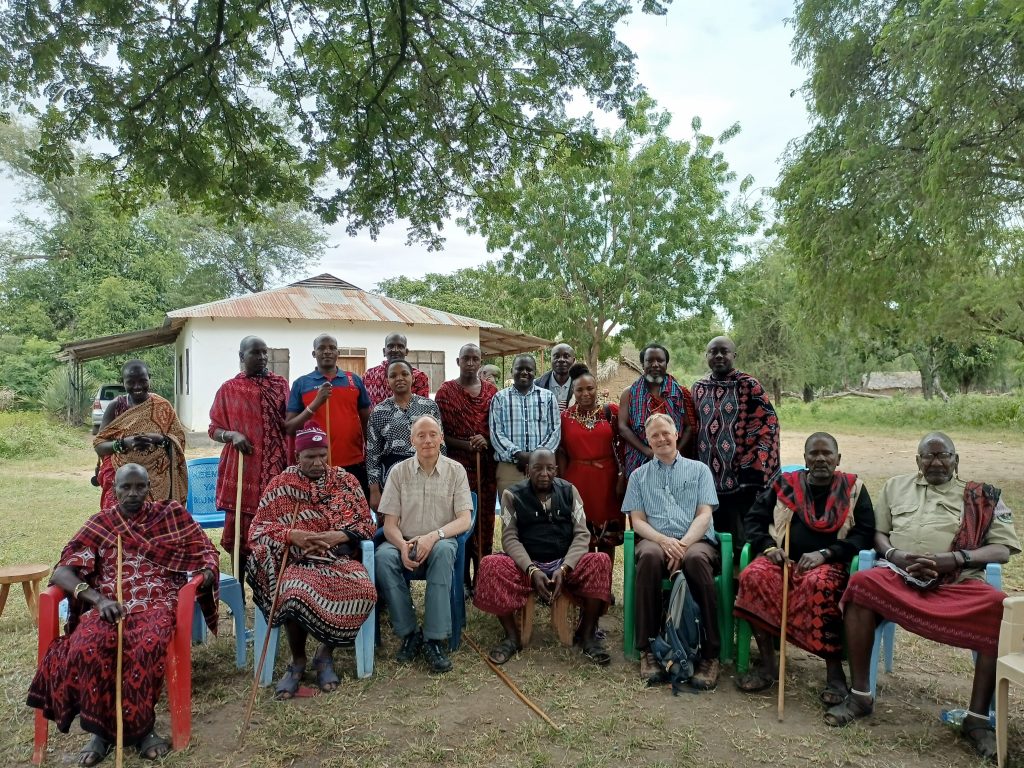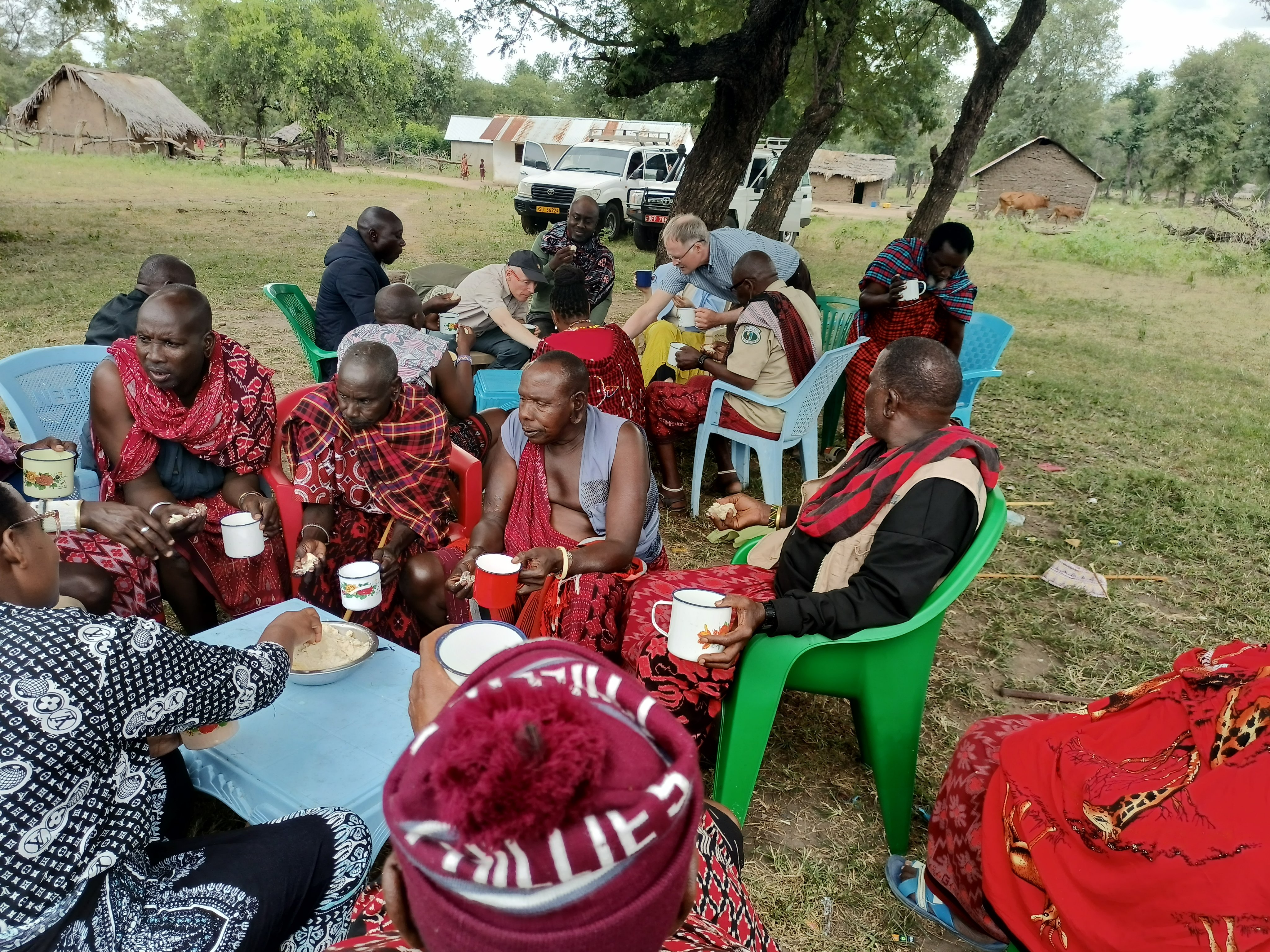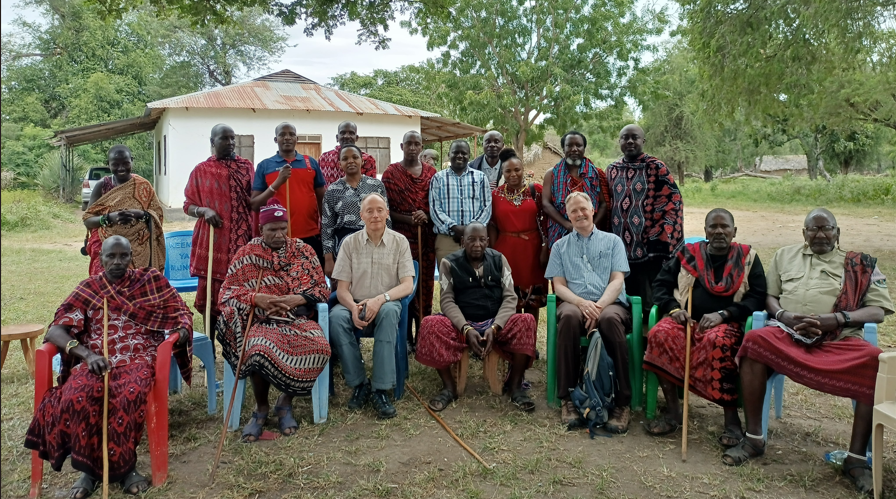LIVEFOR Project aims to enhance understanding of the extent to which inclusion of livestock keeping in Village Land Forest Reserves (VLFRs) could reduce conflicts between Pastoralists and Agro-Pastoralists (PAPs) and farming communities in Tanzania while improving their well-being.

LIVEFOR researchers in a group photo with Maasai elders after discussions in Kambala village, Mvomero District. The seated centre is the Olaibon (Great Chief of the Parakuiyo and Spiritual leader of the Maasai). @EdithBenedict @jefri_lund @BenRwelengera @RKicheleri
The project is implemented by Sokoine University of Agriculture (SUA), the Mwalimu Nyerere Memorial Academy (Tanzania) in collaboration with the University of Copenhagen (UoC) Denmark.

After a fruitful discussion session, lunch is served. A taste of the Maasai hospitality. LIVEFOR in Mvomero District
Specific objectives are to:
(i) examine how dominant narratives within Tanzania about livestock and forestry are reproduced and how they compare to state-of-the-art scientific knowledge;
(ii) document and understand the process as well as social consequences of including livestock in the governance of VLFRs;
(iii) quantify and model the biophysical and production economic consequences of integrating translocated livestock in the governance of VLFRs;
(iv) enhance the research and teaching capacity of the College of Forestry, Wildlife and Tourism (CFWT), SUA and Department of Social Studies (DSS), Mwalimu Nyerere Memorial Academy, and Department of Food and Resource Economics (IFRO), UoC; and
(v) disseminate and discuss project findings with pastrolists and agro-pastoralist (PAPs) and village representatives, local and national elected members, local and central government representatives as well as international communities.
The objectives are achieved by training PhD students and Postdoc candidate under three research work packages: (i) the political ecology of pastoralism and forestry in Tanzania; (ii) the de facto governance of VLFRs which include PAPs; and, (iii) implications of PAP integration on VLFRs’ ecology and production economics.


